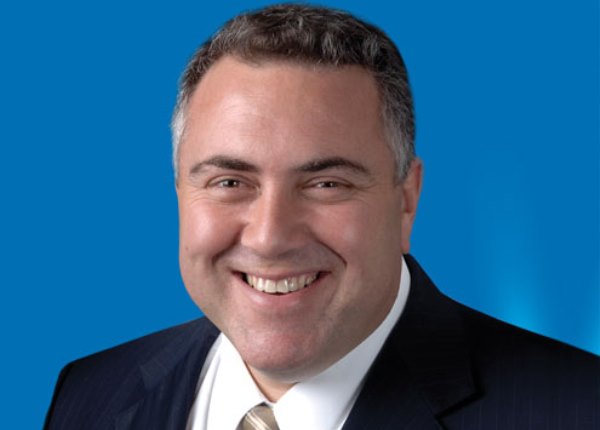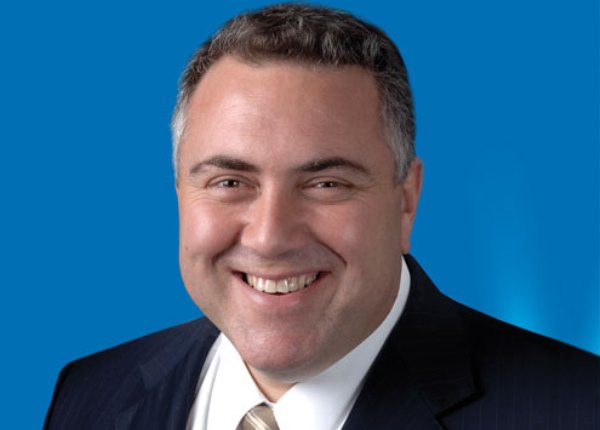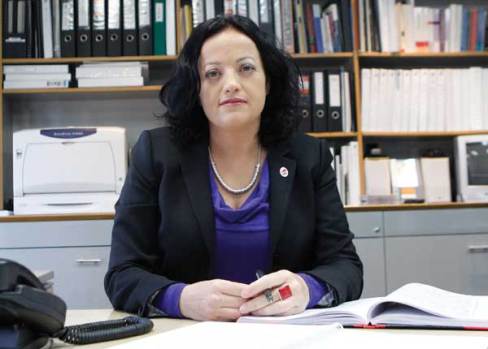

Federal Treasurer Joe Hockey and Finance Minister Mathias Cormann have finally released the ‘Phase One’ report of the government’s National Commission of Audit with the Treasurer immediately seeking to put distance between what he called some of its more “ambitious” recommendations and the path that the government will follow.
Speaking at a press conference following the release of the report, Mr Hockey stressed that the document was “not the Budget”, adding that “this is a report to the government, not of the government.”
Many of the recommendations in the report are so bold, far reaching and electorally and politically poisonous that there is essentially no realistic chance of them being adopted.
These include placing family homes into the asset pot for means testing (from 2027) and allowing supermarkets to enter the pharmacy market, both of which are likely to be deeply unpopular with the rising number of old voters.
A major theme of the large, much anticipated and high-speed review – ostensibly aimed at increasing the efficiency and reducing the size of government – is the handing back of many of the Commonwealth’s present policy functions in areas like health and education to the states.
Most controversially the report proposes reworking the present national tax regime to allow states to impose a surcharge on income tax, a move that is likely to elicit a mixed reaction from the business.
The proposal to recast longstanding taxation arrangements through a shifting back towards the states is underpinned by the application of what the Commission terms two key principles: “subsidiarity and sovereignty.”
Under subsidiarity it says that “policy and service delivery should, as far as practicable, be devolved to the level of government closest to the people receiving the services” because this would allow “programmes to be tailored to meet community needs and recognises the significant differences across the nation.”
“This recognises sub-national governments are likely to have greater knowledge of the needs of citizens affected by their policies,” the report said.
To address what the Commission calls a “vertical fiscal imbalance” the report proposes an arrangement “whereby the Commonwealth would lower its personal income tax rates to allow room for the States to levy their own income tax surcharge.”
It adds that the hit to federal revenue Commonwealth “would be offset through an equivalent reduction in the payment of other financial assistance to the States” and that this would give states “a new untied source of revenue (through the personal income tax system) in place of tied grants.”
The sprawling mass of funding and administrative arrangements between the states and the Commonwealth – including the Council of Australian Governments (COAG) – are also in the crosshairs.
Specifically, the report has taken aim at the COAG Reform Council, saying that its role could be punted to the Productivity Commission “if a substantial rationalisation of National Agreements and National Partnership Agreements could be achieved alongside a streamlining of reporting and data requirements.”
To make that happen the Commission of Audit wants all “National Partnership Agreements [to] be reviewed, with a view to rationalising their number.”
It notes that there are “144 agreements in place under the Intergovernmental Agreement on Federal Financial Arrangements” and that “in recent decades, the operation of the Federation has been characterised by a proliferation of small payments to the States, with increasing Commonwealth control involving excess red tape and excessive reporting requirements.”
Cornucopia of Cuts
In terms of spending on programs and benefits, the Commission has outlined a primary hit list that it says the Commonwealth has “limited justification” for “continued involvement or for maintaining involvement in the present form.”
The provision of industry assistance programs, including “funds devoted to assisting uncompetitive industries” that “could be better spent elsewhere or not spent at all” with 22 programmes nominated to be “rationalised, phased-out or abolished.
Assistance to exporters is also under fire with the roles of the Export Finance and Insurance Corporation (EFIC), the Australian Trade Commission (Austrade) and the Export Market Development Grants scheme all being nominated for substantial reductions.
“Much of Austrade’s activities come at a high cost relative to the business opportunities generated,” the report says, adding that “the Export Market Development Grants scheme should also be abolished as the benefits of exporting are largely captured by the business itself, with few broader benefits to the community.”
A key reason cited for the abolition of the export grants is that “40 per cent of recipients of these grants are businesses employing less than four people” – an observation unlikely to please either the small business or technology development communities.
Research and innovation has also been called out as duplicated and insufficiently aligned with policy objectives. The Commission has flagged total funding of $9 billion a year that should be subjected to what it calls a “more strategic, whole of government approach to the funding of research and development.” It wants a reduction in grants process duplication and the axing of “industry specific programmes.”
The effectiveness of Indigenous programmes is also listed as a target for significant consolidation or abolition. The Commission suggests “discontinuing those programmes with no discernible effective outcomes” as well as suggesting that 150 Commonwealth programmes should be checked for duplication with state efforts. The Commission wants “savings from rationalisation” redirected to a “new voucher programme for accredited early childhood learning, schools, vocational training and universities for Indigenous children and youth.”
Australia’s public broadcasting and media organisations, namely the ABC and SBS were always anticipated to be ripe for a political thumping, however the commission has pulled up notably short of any suggestion of substantial privatisation or outsourcing. Instead the Commission wants the ABC and SBS to be “independently benchmarked against both each other and the commercial broadcasters” to try and find efficiency and savings but importantly notes that this must come without “compromising their capacity to deliver services, including to remote and regional Australia.”
A suggestion more likely to make it into the Budget is for big shake-up of Commonwealth-funded rental assistance and public housing. The Commission says that housing and the preventions of homelessness are a state responsibility and that the Commonwealth should essentially needs to step away.
“Increased funding for rent assistance would be paid for by redirecting funds currently provided to the States under existing housing agreements,” the report says, adding that “rent assistance be extended to include payments to public housing tenants (on the basis that tenants commence paying market rates of rent).”
The states would also gain total carriage of vocational education and training including Commonwealth funding now paid to businesses to subsidise apprentices, albeit with “some requirements for national reporting and quality assurance.” Despite the handover to the states, the Commission still wants labour demand driven reforms to continue along with “improvements in mutual recognition of occupational licensing between States.”
Highly complex arrangements for compensating for the effects of natural disasters – which are now under review by the Productivity Commission – are similarly nominated for hand back to the states, something some states will like less than others. The Natural Disaster Relief and Recovery Arrangements have been nominated to be replaced by a “grant to affected States in the case of each major natural disaster” with the Commonwealth’s contribution to be “based on a designated proportion of the estimated reconstruction costs.”
A less controversial measure that could muster bi-partisan support is an overhaul of the longstanding mess of Commonwealth Grants that both sides of politics have conspicuously struggled to keep track of. The Commission wants a central register to be established within the Department of Finance “with complete transparency on all grants awarded” as well as “establishing and publishing clear outcomes against which each grant is regularly assessed. The sting in the tail of that proposal is a that for each portfolio, grants programmes “with a value of less than $5 million across the forward estimates” be cut by 15 per cent by 2015-16.
More to come…
Comment below to have your say on this story.
If you have a news story or tip-off, get in touch at editorial@governmentnews.com.au.
Sign up to the Government News newsletter



Labor is hopeless wasters (make that just hopeless). The Liberals are trying their best to close the country down and put everyone out of work and on the breadline. The Greenies live in an idealistic never never fairy world of their own. What can a voter like me vote for in the next election?